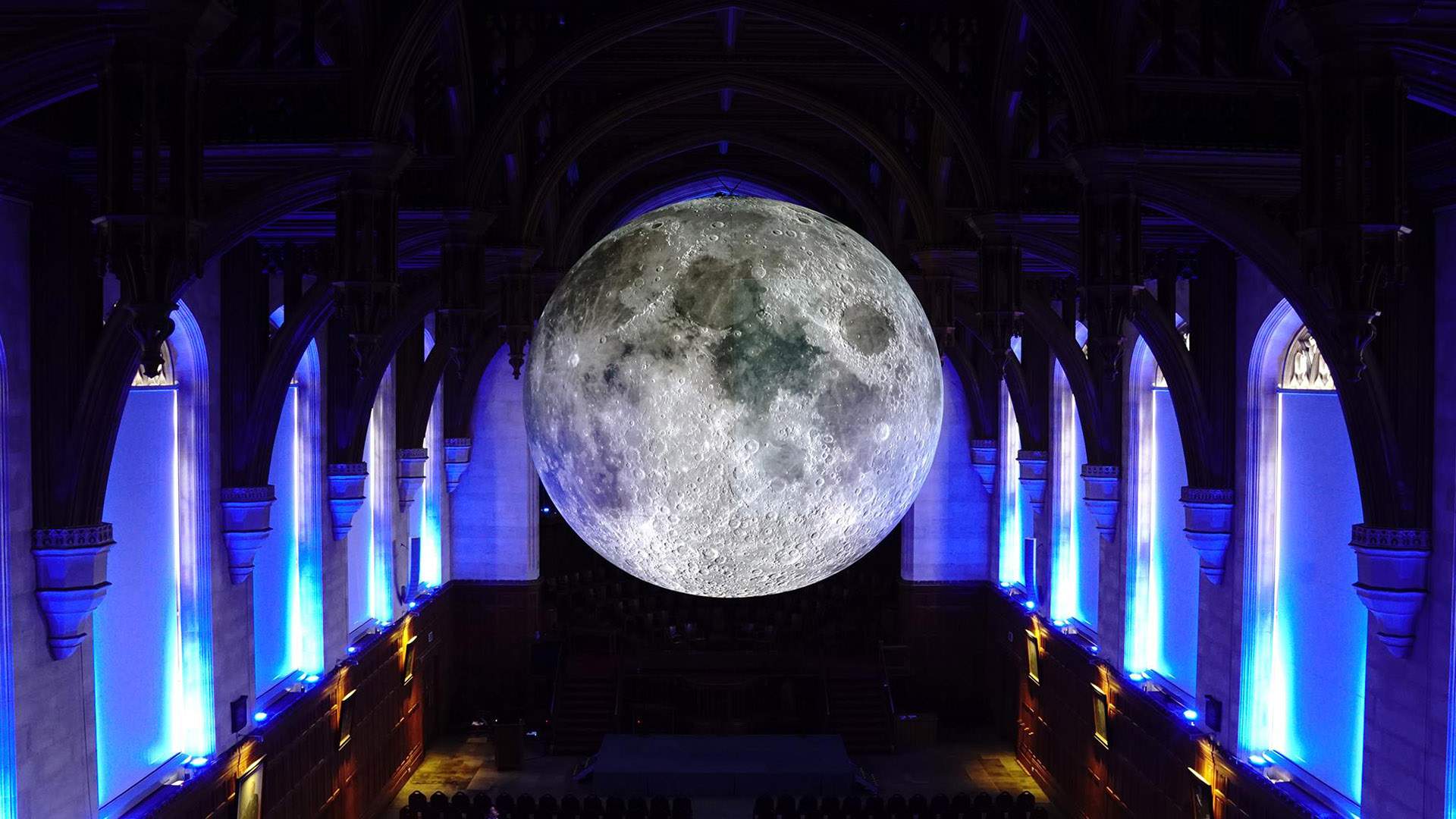A Giant Floating Sculpture of the Moon Is Coming to Australia
It measures seven metres in diameter and features detailed NASA imagery of the moon's surface.
Prepare to stare at the moon in all of its glory — up close, without a telescope and without zooming into space.
Measuring seven metres in diameter and featuring renderings of the celestial body's surface based on NASA imagery, the Museum of the Moon is a detailed installation by UK-based artist Luke Jerram. The giant sculpture has been touring the world since 2016, displaying in New York, Hong Kong, Mumbai and plenty of spots around Europe. Between December 1, 2018 and April 28, 2019, it'll add Melbourne to its orbit.
Inspired by Jerram's time living in Bristol and "noticing the huge tidal variation as he cycled over the Avon Cut each day" according to the Museum of the Moon's website, the artwork recreates the moon at a scale of approximately 1:500,000, with each centimetre equating to five kilometres of the lunar surface. And if you're wondering just how intricate the 120dpi imagery is, the high-resolution NASA photograph that it uses is 21 metres wide, and was taken by by a satellite carrying the Lunar Reconnaissance Orbiter Camera.
The spherical sculpture is lit from within, so it'll add a glow when it comes to Scienceworks for five months. It also combines its imagery and light with a surround sound piece created by composer and sound designer Dan Jones, and just how each venue displays it is up to them. Basically, it's never the exact same installation twice.
Jerram has multiple moons, with several touring simultaneously — so the Museum of Moon will also be on display in Newcastle in the UK across some of the same period.
Its stint at Scienceworks will mark the Museum of the Moon's second visit Australia, following 12-day showing on the Gold Coast during the city's Commonwealth Games-adjacent arts festival earlier this year.
Museum of the Moon comes to Melbourne's Scienceworks from December 1, 2018 to April 28, 2019. Keep an eye on the sculpture's website for further details.





